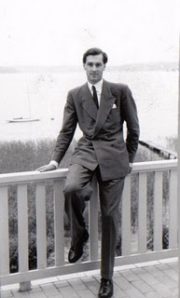Olof Palme and all he represented
News that the Swedish chief prosecutor has finally identified the murderer of Prime Minister Olof Palme in Stockholm, slain in the last hour of the last day of February, 1986, as Palme and his wife were walking toward the subway after seeing a movie, has made me feel again something of the shock I felt when it happened. Palme represented a generous, courageous and trusting global social commitment. And for me, a particular, personal experience where I saw such a commitment in action, not by Palme personally, but by the man he had chosen as his ambassador in Chile, Harald Edelstam, and whom Palme backed when, in the midst of the military coup that overthrew Chilean president Salvador Allende, Edelstam interposed his body between the troops of the coup and the Cuban embassy. As the Wikipedia article describes it,
After the 1973 military coup against Chilean President Salvador Allende, the Cuban Embassy was under fire by tanks and Cubans were returning fire from the windows; Edelstam took a Swedish flag in hand and walked in front of the tanks as bullets hurled past. He fetched the Cubans out of the embassy and took them to the Swedish Embassy, then got them out of Chile to safety.[4] After the incident, the Cuban Embassy in Santiago de Chile remained under Swedish for 18 years until 1991.[5] Prime Minister Olof Palme gave him all his support.[6]
When I got to Chile in February 1974, as part of an investigative team (the Chicago Commission of Inquiry into the Status of Human Rights in Chile), Edelstam was no longer there, but the new chargé d’affaires and staff of the Swedish delegation were continuing to protect the former Cuban embassy and the many Chileans and other Latin Americans who had taken refuge there, including top trade union leaders. The Swedes knew that our group had arrived, and invited the trade unionists in our group — Abe Feinglass of the Meatcutters and Ernie DeMaio of United Electrical Workers, and me from the teachers union and serving as translator for Abe and Ernie — to rendezvous with a young Swedish woman at the wheel of a Volvo, on a certain street corner at a certain hour, who took us to what turned out to be a dinner with some of the most-wanted men and women fugitives from Pinochet’s killing and torture machine. A solemn but, within the limits of clandestinity and with good Chilean wine, a festive affaire, which gave us lots of material for our reports to Congress and to the press after we got home.
The survival of those fugitives would not have been possible without the intrepid intervention of the very tall, very dignified and very authoritative-sounding Harald Edelstam (who in fact, under international law, had no authority for his action), whom I did finally meet. And Edelstam’s presence and his actions, and those of the continuing Swedish staff in Santiago, would not have been possible without the firm support of Olof Palme. Part of why I, like so many people, felt deeply his loss that night in 1986.
